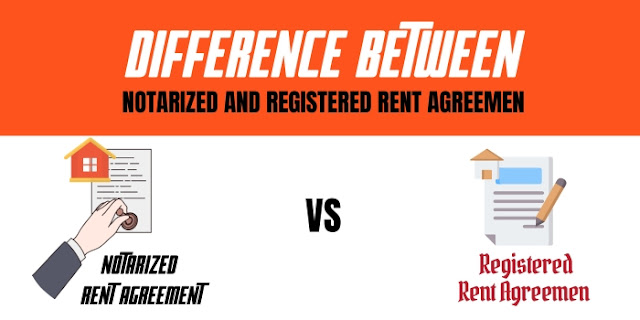Common Mistakes to Avoid in Rent Agreements
Entering into a rental agreement is a significant step for both landlords and tenants. However, amidst the excitement of finding a new place to live or securing a reliable tenant, it's crucial not to overlook the finer details of the rental agreement. In this blog post, we'll explore some common mistakes that both parties should avoid to ensure a smooth and mutually beneficial rental experience.
Rushing Through the Agreement:
One of the most common mistakes tenants and landlords make is rushing through the rental agreement without carefully reviewing its terms and conditions. Take the time to read and understand every important clause, including those related to rent, utilities, maintenance responsibilities, and termination conditions. Rushing can lead to misunderstandings and disputes later on.
Not Clarifying Maintenance Responsibilities:
Failure to clearly outline maintenance responsibilities in the rental agreement can result in confusion and disagreements down the line. Both parties should agree on who is responsible for routine maintenance tasks such as lawn care, appliance repairs, and general upkeep. Documenting these responsibilities in the agreement can prevent disputes and ensure that the property remains well-maintained.
Ignoring the Fine Print on Rent Increases:
Many tenants overlook the fine print regarding rent increases in their rental agreements. It's essential to understand the conditions under which the landlord can raise the rent and by how much. Tenants should also inquire about the frequency of rent increases and whether they are subject to any rent control regulations in their area.
Neglecting to Document Property Condition:
Before moving in, tenants should thoroughly inspect the property and document any existing damages or issues. Failure to do so could result in disputes over security deposit deductions when it's time to move out. Likewise, landlords should provide tenants with a move-in inspection checklist and encourage them to document the property's condition upon arrival.
Overlooking Lease Termination Terms:
Lease termination terms are often overlooked but are crucial for both tenants and landlords. Tenants should understand the notice period required for ending the lease early and any associated penalties. Similarly, landlords should include clear provisions for lease termination, including notice periods and conditions under which they can terminate the lease.
Skipping the Background Check:
Landlords should conduct thorough background checks on prospective tenants to ensure they are reliable and financially stable. Skipping this step can lead to renting to tenants with a history of late payments, property damage, or even criminal activity. Tenants should also research their landlords to ensure they are reputable and trustworthy.
Failure to Discuss Pet Policies:
Pet policies are often a source of contention between landlords and tenants. It's essential to discuss and document any restrictions or requirements regarding pets in the rental agreement. Landlords may impose pet deposits or additional monthly fees, while tenants should abide by any rules regarding pet ownership to avoid lease violations.
Not Understanding Security Deposit Regulations:
Security deposits are intended to protect landlords against potential damages or unpaid rent. However, both landlords and tenants should understand the regulations governing security deposits in their area. This includes the maximum amount that can be charged, the timeframe for returning the deposit, and any deductions that can be made.
Conclusion:
Navigating a rental agreement requires attention to detail and clear communication between landlords and tenants. By avoiding these common mistakes and ensuring that all terms are clearly documented and understood, both parties can enjoy a positive and hassle-free rental experience. Remember, a well-written and comprehensive rental agreement is the foundation for a successful landlord-tenant relationship.



%20(18).jpg)